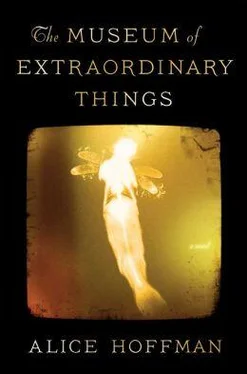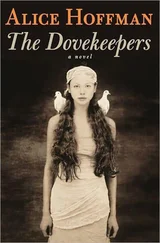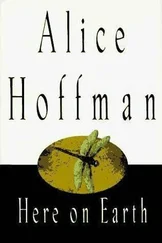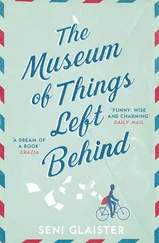Many people cried during the ceremony, Maureen among them. She downright wept, and I was surprised to see her so emotionally wrought. Afterward, the guests rushed to congratulate both bride and groom before heading off to a small celebration at the groom’s family’s house. By then, I was halfway home. Because I couldn’t bear to go back to my father’s house, I went to the shore instead. I sat on a bench and breathed in the salt air. My gloved hands were folded on my lap, and the cotton fabric felt as if it had been spun from shards of glass. I knew what was inside of me: the green tendrils of jealousy. I wanted nothing more than to be an ordinary girl with the man I’d seen in the woods in love with me, though this seemed a more impossible occurrence than swimming out into Gravesend Bay, across the Atlantic Ocean to my father’s homeland of France.
When Malia came to work the following day, I nodded a greeting. I did not offer my congratulations or ask why she appeared so radiant. I pretended I had never stood behind the column in the church to witness her joy. I noticed that she, too, went about her business as if nothing had changed. Because she could not wear a ring, her husband had given her a simple gold necklace, which was clasped around her throat. She acted as if she had always had this lovely ornament, and made no mention of it. She gracefully slipped on her costume and chatted with her mother in their pretty, birdlike language. If she felt my gaze upon her, I assume she was accustomed to being stared at, just as I was used to wanting what I could not have.
But all things changed, or so it was said. Maureen once told me she believed she was the last person in the world who might find happiness. She believed she didn’t deserve it, she said, and had many times thought of throwing her life away, for it did not serve her well. Perhaps in the great scheme of things, another, more deserving person would be granted her time on earth. But each time she had considered ending her life, she’d had second thoughts. Who would have made your breakfast? she said to me. Who would have met the Wolfman when he first came into our yard, wearing his cloak, beaten by the world? Love happens in such a way, Maureen told me. It walks up to you, and when it does, you need to recognize it for what it is and, perhaps more important, for what it might become.
THE OFFICERS had tramped through the garden, paying no attention to the runner beans, or the rows of lettuce, or to the huge bottle-green leaves of the squash plants, soon torn from their tendrils. The police in Coney Island could be hired as a personal squad for those willing to pay the price, and the Professor was among those who regularly made a donation on his own behalf so that he might run the museum as he pleased, unmolested by the authorities. It was a common enough practice, not just for reputable businessmen but for those with a more criminal intent, a world of con men and thieves. There were theater owners whose clientele had come to watch private shows of dancing naked women, only to be given knockout drops and robbed. Gambling houses where games of chance were rigged to ensure any and all players would lose. All of these establishments paid for the protection of the sheriff’s men.
Upon seeing the photographer, the Professor sent one of the Durante brothers to fetch several officers. The lawmen arrived quickly, there to do the museum owner’s bidding, for that was part of the bargain; they had their bully sticks at the ready, while the Professor and Eddie were still in the midst of a heated argument.
“If you’ve nothing to hide, why keep me out?” Eddie demanded.
“I won’t be the one keeping you out,” the Professor told him coldly. Though he was a liar, there was truth in his statement, for as soon as Eddie glanced over his shoulder, members of the sheriff’s department were upon him. They wasted no time dragging him from the property. He shouted that he had his rights, but in this garden clearly he did not, nor did he in all of Kings County. He cried out that he was being kept from his own property, for his camera and stand had fallen to the ground, but no one listened to his protestations. If he’d had ready cash for a payoff, he might have turned the situation around once they were out on Surf Avenue. But he had nothing to offer, and the officers did the job they had been paid to do, in which the goal was to dispose of him in such a way that he would never dare to return.
Coralie watched from her window, stunned. She had a wild urge to leap out and chase after them, and imagined grabbing the sword from the wall in her father’s bedroom so she might fight off the officers. But when the Professor turned to gaze up into her window, a hand over his eyes to block out the sun, she ducked behind the muslin curtains, breathing hard, terrified he might spy her shadow. She was ashamed by her own lack of courage, yet she shivered there, immobilized, tears streaking her face. Where was the bravery the trainer Bonavita had insisted she possessed when she stood inside the lion’s cage? Furious with herself, she tore off her gloves, then withdrew a needle from the sewing kit on her bedside table and stabbed it into the flesh between her fingers until there were drops of blood, each one a penance for her cowardice.
Later in the day, Coralie retrieved Eddie’s camera, which had been pitched into the hydrangea bushes, along with the glass plates that had captured the images of the living wonders. One plate had cracked, but the others were safe enough, though wet with dew. Coralie stashed Eddie’s belongings beneath the porch, then she went to her room and pulled down one of the curtains. She hurriedly returned to toss the curtain over the photography equipment to keep it from harm, weeping as she did so, as if it were a secret burial she was attending to.
That evening, Maureen called to her, suggesting they slip out to the porch, where they might be afforded some privacy. The Professor was in his study, still fuming, drinking too much rum. He had questioned Coralie after the incident. Had she ever met this young man who had dared to photograph the wonders? She vowed she had never before made his acquaintance, which was true enough. They had never formally been introduced.
“They took him over the bridge,” Maureen confided, for she’d asked the Durante brothers to follow the police wagon and report back to her. “They treated him as you might expect. He did not come out as the winner of this encounter. The authorities made it clear that, should he dare to enter Brooklyn again, he’ll find himself in the Raymond Street Jail, and that’s a place no man deserves to see. Let this be the end of it, Cora, for it can only finish badly for one and all.”
But it was not the end of it, not by far. The museum opened the following day. There were even fewer in attendance than anyone had expected, and several potential customers walked away rather than pay the price for a ticket, declaring forty cents to be an exorbitant fee. Still, it was the beginning of the season, with much to do to prepare for what they all hoped would be a more profitable summer, helped along by overflow crowds from Dreamland, which would reopen in all its glory on the last weekend of May.
The Professor made a special point to warn Coralie against strangers. He told her to report anyone who might be lurking about. They were in the parlor, beside the horrid cereus plant, its twisted brown form bare as sticks, its bitter scent dizzying. Coralie assured her father that she would do as he ordered, though she wished she dared ask what she was to make of the strangers who attended her private shows. She, indeed, looked out of sorts, her cheeks flushed and red, and the Professor insisted on testing her forehead for fever. The burning that consumed her, however, was not an illness, only the hatred she felt for him. All the same, his belief that she was afflicted suggested the beginnings of a plan. The following afternoon, she forced her fingers down her throat so that she might be sick and beg off her performance due to illness. She powdered her face so that she appeared infirm, and circled her eyes with coal so they seemed sunken and hot.
Читать дальше













